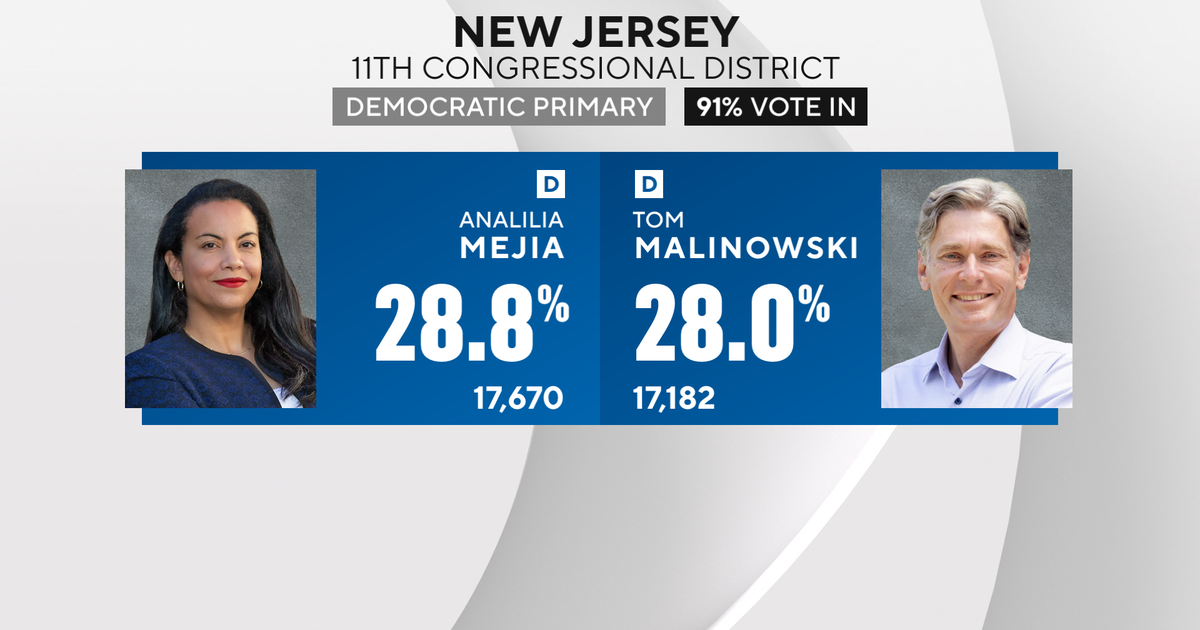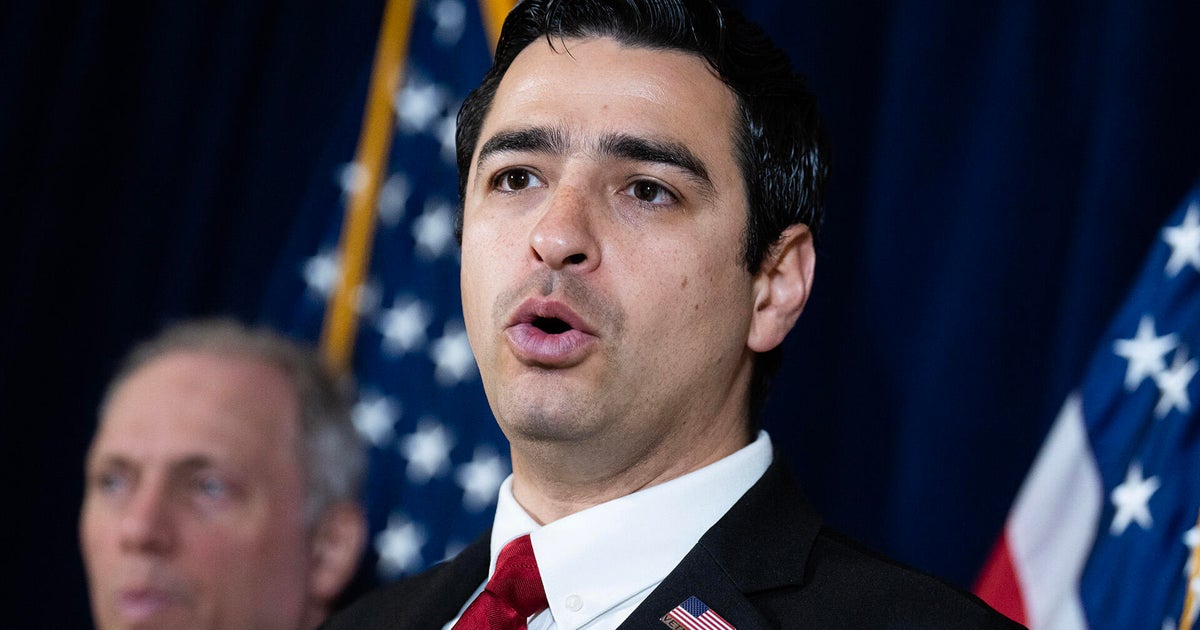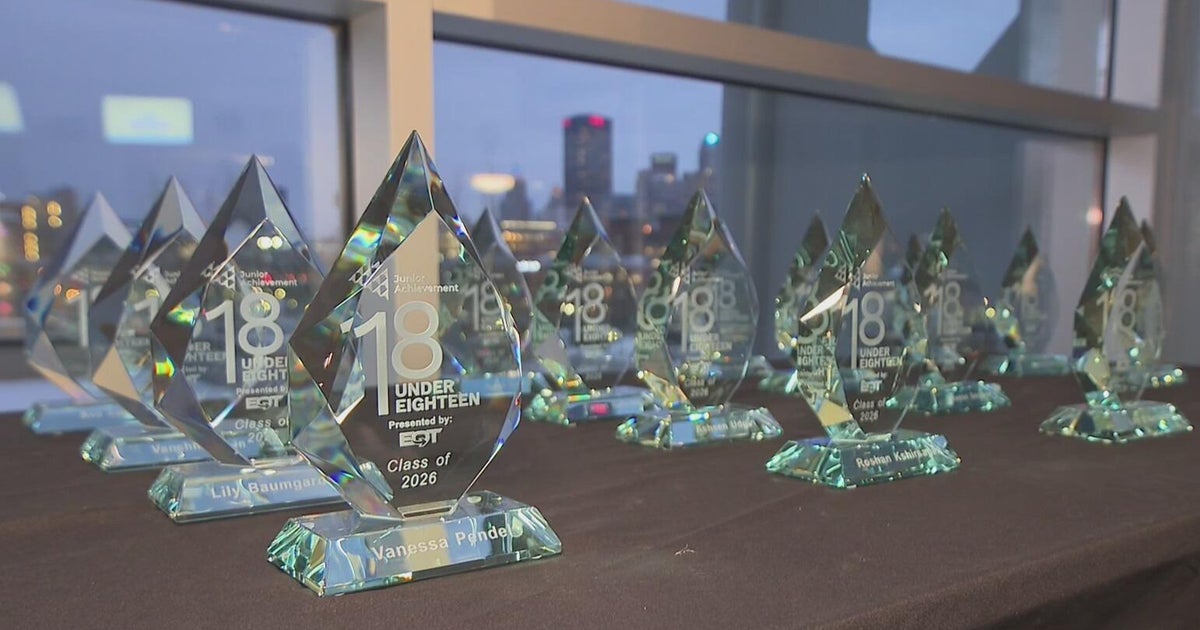Two Democratic Challengers For Congressional Seats Play Name Game
SOPCHOPPY (CBSMiami/AP) — A pair of candidates for U.S. Congress are banking on name recognition to boost their campaigns.
During a campaign stop at the Worm Gruntin' Festival in the conservative panhandle, Democratic U.S. House candidate Gwen Graham listened to voter after voter recount fond memories of her father, Bob, who towered over Florida politics for more than a quarter-century as governor and U.S. senator.
Nearby, in south Georgia, Democratic U.S. Senate hopeful Michelle Nunn is finding the same experience among voters who still revere her father, Sam, almost 18 years after he retired after a lengthy career in the Senate.
Graham and Nunn are going beyond the typical advantages of name ID and fundraising connections. They explicitly hold up their fathers as examples of what kind of elected officials they would be: old-style moderate Southerners, the kind rendered largely extinct on Capitol Hill.
"I often hear from people that they miss the days in which they felt like they had someone who was a statesman and reached across the aisle," Michelle Nunn said at a campaign stop in Shellman, Georgia. "I'm both lucky to have that connection and to have my own experiences that demonstrate my capacity to lead in that way."
Graham, who is following her father's campaign tradition of spending days working alongside constituents, said, "I want to put aside the bickering. It should be public service, not politics."
The approach offers Democrats a ray of hope in a midterm congressional election that could continue the party's slide in the South, where President Barack Obama and national figures such as U.S. House Democratic leader Nancy Pelosi of California are broadly unpopular.
Republicans aim to unseat Democratic senators in Arkansas, Louisiana and North Carolina on their way to reclaiming a Senate majority. Voter defections and racial polarization are already pronounced in the U.S. House, where U.S. Rep. John Barrow of Georgia is the sole white Democrat from the Deep South states that stretch from South Carolina to Louisiana.
Graham, 51, wants to oust U.S. Rep. Steve Southerland, who won Florida's 2nd District in Republicans' 2010 midterm House sweep. Nunn, 47, is trying to succeed retiring U.S. Sen. Saxby Chambliss, R-Ga.
A Nunn victory would make it difficult for Republicans to gain the six seats they need for a U.S. Senate majority.
Many Republicans acknowledge that Graham and Nunn are strong first-time candidates, given Democrats' struggles in the South.
"Michelle Nunn sounds like one of the best Republicans in the race," quipped Georgia GOP strategist Todd Rehm, as his party awaits a May 20 primary and subsequent runoff.
But GOP loyalists predict Nunn and Graham will struggle to win over a midterm electorate expected to be older, whiter and more conservative than in presidential years. "Family roots may be important," said Southerland spokesman Matt McCullough, but voters want Graham "to start showing a little leadership in her own right."
Nunn and Graham call themselves independent voices, promise to tackle national debt and say Obama's health care overhaul needs improvement. Graham goes further, saying Obama should have pursued incremental changes instead of a sweeping law.
Graham was the chief labor negotiator for the Leon County School District. Nunn spent 25 years running not-for-profit volunteer organizations, culminating as CEO of former President George H.W. Bush's Points of Light Foundation.
Nunn mentioned Bush, a Republican, in one television spot; her father appears in another. "My dad has been reminding me throughout the campaign that he never passed any legislation that didn't have bipartisan support," she told AP.
For Graham, the lessons come from spending work days with voters, something her father once did. She's worked the cash register in a food truck, hung drywall at a construction site, chased chickens and trimmed goat hoofs on a boutique farm. In one town, she wore a bulletproof vest for a day-in-the-life of a police officer.
"To be able to spend real time with people ... gives you a connection that I think sadly is missing in Washington today," Graham said, noting that the work days made her father "a better leader."
Bob Graham championed traditional liberal causes such as public education and environmental protection but cracked down on drug crimes and revived capital punishment, earning nicknames like "Bloody Bob" and "Governor Death." In his last Senate race in 1998, he carried 63 of Florida's 67 counties.
Likewise, Sam Nunn never fit into an ideological box. He defended U.S. military strength, to Georgia's economic benefit. But he voted against the 1991 Gulf War and has focused since leaving office on reducing nuclear arms worldwide. He generally was liberal on race and immigration, but supported school prayer and the death penalty, and opposed allowing gay soldiers to serve openly.
Due in part to his relationships, former U.S. Sens. Richard Lugar, R-Ind., and John Warner, R-Va., have contributed to Michelle Nunn's campaign.
The electoral dynamics in both campaigns explain Democrats' strategy in emphasizing that centrism.
The Florida Panhandle is Republican territory, but the 2nd Congressional District, which includes heavily Democratic Leon County, gave Obama 46.5 percent and 47.1 percent in his two presidential victories. Southerland won by a comfortable-but-competitive 5 percentage points in 2012.
In Georgia, Republicans hold every statewide executive office, and Democrats haven't won a U.S. Senate race since 1996, when Max Cleland captured Sam Nunn's seat, only to lose to Chambliss in 2002. Yet Chambliss needed a general election runoff to win in 2008, and Obama notched 47 percent and 45.5 percent statewide.
While hoping to maximize support from black voters and urban whites, Graham and Nunn look to convert just enough white voters outside the cities, closing the gap with old "Reagan Democrats" who could just as easily be called "Bob Graham Republicans" or "Sam Nunn Republicans."
Gary Harrell, a surveying engineer near Albany, Ga., fits the bill.
Harrell said he hasn't voted for Democrats at the federal level since Sam Nunn and Bill Clinton. Now he's backing Nunn's daughter. "I'm just really struggling with this administration," he said of Obama, "but not necessarily all Democrats — and I was a huge fan of her father."
Yet it's just as easy to find skeptics.
Bobby Porter, a lifelong registered Democrat who attended the worm festival in Florida, said he won't support Gwen Graham. "I don't think I've voted for a Democrat in 40 years," he said. "I'm satisfied with Mr. Southerland. I feel like he stands firm in how he votes."
(TM and © Copyright 2014 CBS Radio Inc. and its relevant subsidiaries. CBS RADIO and EYE Logo TM and Copyright 2014 CBS Broadcasting Inc. Used under license. All Rights Reserved. This material may not be published, broadcast, rewritten, or redistributed. The Associated Press contributed to this report.)
RELATED CONTENT:







